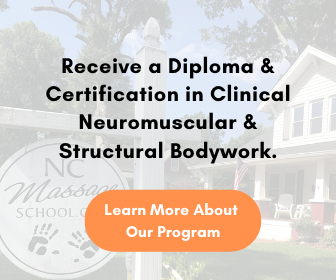The Integration of Therapeutic Massage in Patient Care Plans
Integrative medicine is a holistic approach to healthcare that places the patient at the center, emphasizing treating the whole person rather than just the symptoms of a disease. It combines conventional medical treatments with complementary therapies such as acupuncture, meditation, and therapeutic massage to address patients’ physical, emotional, and mental well-being. This approach is grounded in a philosophy that values tailored treatments to meet individual needs and promotes healing relationships.
Integrative medicine represents a significant paradigm shift from the traditional biomedical model, which primarily focuses on pathophysiological processes and often overlooks the broader influences on health. Instead, it adopts a biopsychosocial model that integrates biological, psychological, and social factors into patient care, encouraging a more comprehensive and interconnected form of medicine informed by evidence and utilizing all appropriate therapeutic approaches.
The Importance of Treating the Whole Person
At NC Massage School, we believe in a holistic approach to health that goes beyond treating physical symptoms. We understand that true wellness involves mental and emotional health, too.
Our approach not only aids in managing existing conditions but also in preventing new health issues, fostering a comprehensive state of wellness that integrates body, mind, and spirit. This holistic perspective ensures that healthcare is about more than just alleviating symptoms; it’s about nurturing a sustainable, healthy lifestyle that supports your unique health journey. We understand that your health is personal, and we’re here to support you every step of the way.

Therapeutic Massage as a Complementary Therapy
Therapeutic massage is more than just a method for relaxation; it’s a key component of integrative medicine, which aims to enhance overall health.
It is integrated into patient care plans as a complementary therapy alongside conventional medical treatments, addressing a variety of ailments and contributing to a holistic health approach. Specifically in:
- Therapeutic massage helps alleviate chronic pain by reducing muscle tension and inflammation.
- Regular sessions can significantly lower stress hormones, promoting emotional and mental well-being.
- Massage techniques enhance blood flow, aiding recovery and overall health enhancement.
- Beyond physical benefits, massage can help reduce symptoms of anxiety and depression, supporting the mental health aspect of integrative care.
- Massage is used to speed up the recovery process after surgery or illness, easing discomfort and improving mobility.
Enhancing Body Functions
Massage therapy enhances blood and lymphatic circulation through a variety of manual techniques. These techniques, such as Swedish massage, deep tissue massage, and lymphatic drainage massage, apply pressure to muscles and soft tissues. This pressure facilitates blood movement from congested areas, allowing fresh, oxygen-rich blood to flow in, which improves nutrient delivery and waste removal at the cellular level. Simultaneously, massage stimulates the lymphatic system—a crucial part of the immune system—which operates as the body’s drainage system for cleansing and filtering toxins, pathogens, and waste products.
The mechanical action of massage encourages lymph fluid to flow more freely, enhancing lymphatic drainage and immune response by promoting the circulation of lymphocytes, which are the white blood cells instrumental in defending the body against infection.

Sleep & Mental Health Benefits
Massage therapy is renowned for its ability to promote deep relaxation, which can significantly enhance sleep quality and help combat insomnia. The mechanisms behind this involve reducing cortisol levels and stimulating serotonin production, facilitating the onset and quality of sleep.
This relaxation response helps individuals fall asleep faster and reach deeper sleep cycles, which are fundamental for physical recovery and mental health. By improving circulation and reducing muscle tension, massage can alleviate the physical discomfort associated with postoperative recovery and the side effects of chemotherapy, such as fatigue and nausea.
Regular massage therapy has also been shown to improve mood and mental stability by decreasing anxiety and depression levels, which are often linked with chronic stress. Studies indicate the physiological effects of massage therapy, including stress reduction.
Wellness Maintenance and Preventive Care
Incorporating therapeutic massage into your routine can be a proactive step towards maintaining long-term health and preventing diseases. Here’s a step-by-step guide on how to integrate regular massage sessions into your healthcare regimen to maximize the preventive benefits:
- Schedule Regular Sessions: Begin by scheduling regular massage sessions. Depending on your health goals and lifestyle, this could range from once a week to once a month. Consistency is key to achieving the preventive health benefits.
- Focus on Stress Reduction: During your massage sessions, emphasize stress reduction. Regular massage therapy can lower stress hormones like cortisol, decreasing the risk of stress-related disorders.
- Enhance Your Immune Function: Ask your massage therapist to focus on techniques that boost immune function. An effective massage can increase the activity of natural killer cells and lymphocytes, enhancing your body’s natural defense mechanisms.
- Improve Circulation: Ensure that your massage sessions include techniques that enhance blood and lymph flow. Improved circulation helps detoxify the body and promotes better cellular health, crucial for disease prevention.
- Maintain Muscle Health: Discuss maintaining muscle elasticity and reducing inflammation with your therapist. This can help prevent muscle strain and injury, keeping your musculoskeletal system healthy.
- Achieve Emotional Balance: Use massage therapy to help maintain your emotional equilibrium. Regular sessions can help reduce symptoms of mental health issues like anxiety and depression by promoting relaxation and well-being.
- Target Systemic Benefits: Talk to your therapist about the systemic benefits of massage, including how it can positively affect various body systems, such as the digestive and respiratory systems.
Looking Towards The Future
As the field of integrative medicine evolves, massage therapy’s role continues to expand, underscoring the need for highly trained professionals who can meet the rigorous standards of this dynamic healthcare setting. At NC Massage School, we are committed to providing the highest quality of education and staying at the forefront of the latest techniques and research. Whether you’re an aspiring massage therapist or a practicing professional, our diploma and continuing education (CE) classes are designed to equip you with the skills necessary to provide exceptional care in the field of integrative medicine.
Join us at NC Massage School and take a proactive step towards becoming a vital part of the future of healthcare. Enroll in our diploma or CE classes today and ensure you are at the forefront of the massage therapy profession!


